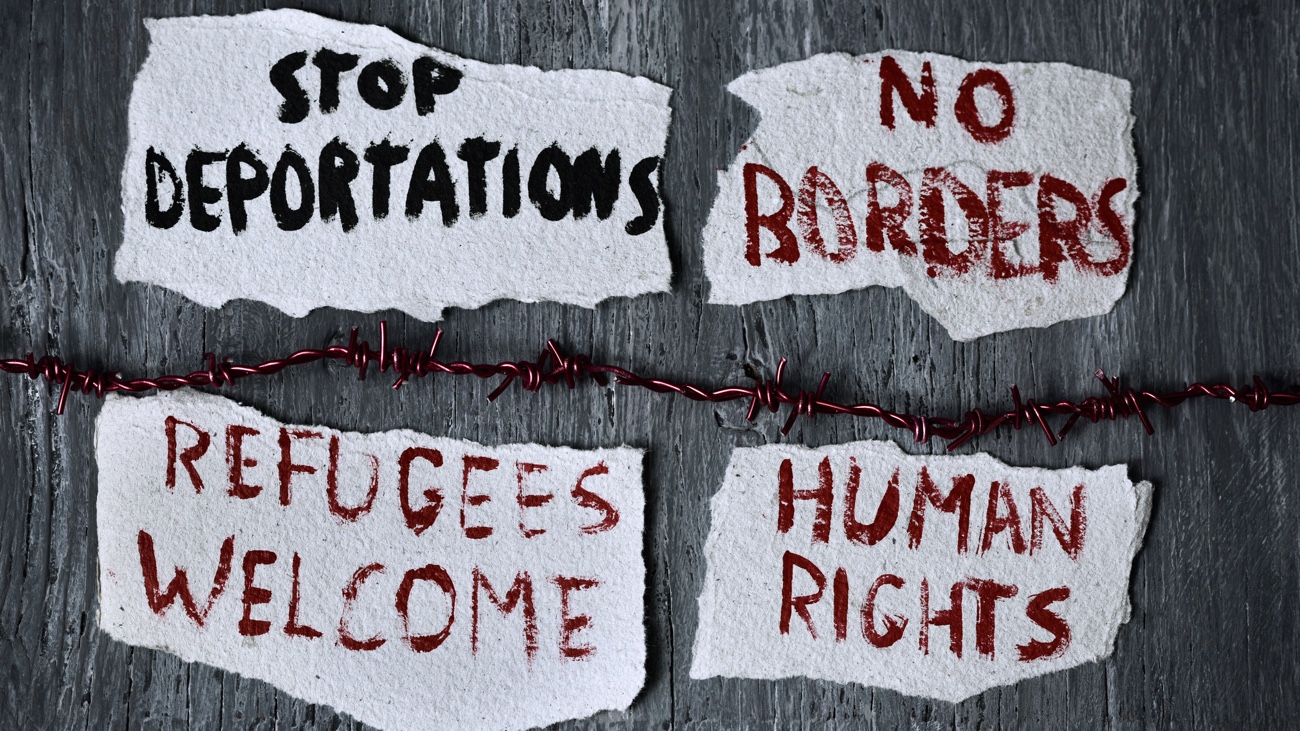
During the first weekend of February, Canadian students at all 22 law schools banded together to support refugee rights and to oppose an increasingly hostile, racist, and Islamophobic atmosphere in the United States. In the wake of U.S. President Donald Trump’s executive order, human rights advocates have once again called into question the Safe Third Country Agreement (STCA).
The agreement was struck in 2004, and essentially forces refugees to seek asylum in Canada or the U.S., whichever they reach first. It assumes both countries have fair and equitable refugee programs. But with the Trump administration, that’s no longer the case. (In fact, many advocates feel it never was.)
After the executive order was issued, several students in Montreal connected with the Canadian Council for Refugees (CCR), and reached out to refugee advocates at other law schools. Within three days, every law school in Canada had signed on to participate in what we called a “research-a-thon.”
As chair of the Osgoode Hall chapter of the Canadian Association of Refugee Lawyers (CARL), I organized Osgoode’s work in the project, and was thrilled at the rapid response from students. Last weekend, schools took on complex research questions developed by the CCR, and mined information that could support a legal challenge the CCR may launch against the STCA.
It’s our hope that our government will suspend the agreement. The fact that a federal judge in Seattle recently blocked the executive order — and that a federal appeals court upheld that ruling Thursday night — shouldn’t matter. We’re seeing increasing danger for people of colour, immigrants, and Muslims in the U.S. We should offer them safety.
During the research-a-thon, Canadian law students accomplished a great deal. More than 835 of us spent close to 4,000 hours developing a comprehensive research package to support CCR’s work. We also raised more than $7,500 for CCR, and received widespread press coverage in Canada and internationally.
Most importantly, we helped highlight the legal realities faced by refugees. Prime Minister Trudeau’s tweets position Canada as a humanitarian leader and a safe place for refugees. We want to ensure that his messaging on social media is reflected in our bilateral agreements, including and beyond the STCA.
Despite last weekend’s success, our work is not done. We need to help Canadians to recognize that our country is not without its own problems. Like the U.S., Canada is a nation born of settler colonialism and genocide, with much of its historical infrastructure developed through racialized and unfree labour.
You can spot Canada’s troubling roots everywhere — especially in the systemic inequalities that continue to play out in our schools, workplaces and laws. Our prime minister is keen to bolster Canada’s image as a rights-focused, humanitarian state. My suggestion is to hold him and the rest of our elected leaders accountable.
What’s left to do? Plenty. Law students can contact our prime minister, MPs, and municipal leaders to confirm that they understand the implications of the STCA. They can volunteer with the Canadian Cross-Border Legal Coalition and continue to support the CCR in raising funds for their advocacy. Finally, they can work together to ensure that Canada represents the values of its newest generations of lawyers. From what I saw this weekend, Canadian law students believe in human rights. Let’s keep pushing forward together.
